Active Learning

“Learn together to work together”
Simulation-based education is available to all undergraduate medical students attending placement at the Dudley Group.
The simulation centre opened in 2014 and is the base for medical simulation within the Trust. Training is delivered by a team of dedicated facilitators with a comprehensive level of clinical and simulation training experience. Our Simulation Lead holds a Masters in Medical and Healthcare Simulation, whilst the Clinical Lead for Simulation has delivered and coordinated simulation faculty development programmes.
Select the buttons below to view further information about each year group.
Third year medical students are given the opportunity to take part in an introduction to simulation and the ABCDE assessment. This session gives them a basic introduction to the manikin and the simulation environment and the opportunity to practice basic clinical skills.
Comments from third year students regarding their session include:
“Good use of the Sim Man”
“Very interactive case” “I learnt a lot in the lesson” “Really well structured and explained”
Fourth year students undertake simulation in a number of specialist areas including respiratory, cardiac, diabetes and endocrine medicine. These sessions incorporate the assessment and management of patients who present with a range of conditions. As part of the multi-professional learning (MPL) cardiology day the 4th year medical students also take part in a multi-professional simulation scenario. They are expected to work with a range of other professional under graduate students to assess and manage a patient who presents with a cardiac problem.
Comments from fourth year students about what they liked about their session:
“Feel more confident on how to deal with a patient with chest pain and about escalating to appropriate people”
“The debriefing afterwards help broaden my knowledge”
Fifth year students take part in a robust acutely ill patient (AIP) programme, which incorporates face-to-face teaching, study guides and high-fidelity simulation-based training. The simulation scenario that accompanies each of the AIP presentations is facilitated and debriefed with expert facilitators for each clinical topic. The students receive repeated exposure to assessing and managing the acutely unwell patient throughout their AIP programme in preparation for their foundation year jobs. The concepts of human factors and non-technical skills and their relevance to medical practice are also incorporated into the simulation teaching.
Feedback from fifth year students regarding what they liked about the session:
“I found it useful to learn about subarachnoid haemorrhage management”
“Good to see the importance of following a history and examination structure”
“Really useful to learn how to manage a delirious patient”
“Learnt about practicalities of working with an acutely ill patients”
Our Simulation Team

Dr Nicola Calthorpe
Clinical Simulation Lead & 5th Year Programme Lead
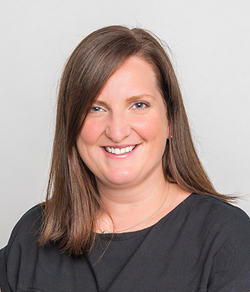
Laura Jones
Simulation Lead
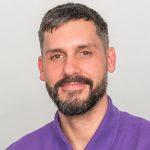
Barry Joseph
Deputy Simulation Lead
For further information please email the simulation team using the button below.;
Find us on ‘X’
Telephone: 01384 456111 Ext 3478

The Clinical Education team at DGFT is committed to embracing new challenges and demands, whilst providing high quality evidence-based education and training. We strive to ensure that tomorrow’s clinicians are highly skilled and competent providers of care, who embrace the organisations’ vision to be a highly regarded healthcare provider, driven by the philosophy that people matter.
Safe Care
- Medical and Physician Associate Students, including international students
- Non-medical healthcare professionals
- Medical professionals
- External healthcare professionals
Training is delivered within a simulated environment with a focus on promoting best practice. Our Clinical Education Team continues to support staff and students during their skills consolidation. Our approach to clinical education allows us to identify individuals who may benefit from additional support and training, to whom we can offer bespoke one-to-one training sessions, if required.
Training all of the Trust’s Key Face Fit Testers
Training Clinical Key Trainers, such as Practice Development Practitioners, in multiple clinical skills
- Writing, reviewing and updating several of the Trust’s Clinical Guidelines, Policies and Standard Operating procedures
- Attending various strategic Trust meetings
- Working closely with the Undergraduate and Postgraduate departments to facilitate and act as examiners in Undergraduate and Postgraduate exams, such as OSCEs and PACES.
- Participating in the Vaccination Hub to support medical students.
- Working closely with the digital media team to create, review and update digital content (e.g. Tomorrow’s Clinicians videos).
- Facilitate the Medical Work Experience Programme.
- Auditing and supporting several Trust-wide projects.
For further information please email the simulation team using the button below.;
Telephone: 01384 456111 Ext 1416
Our Clinical Eduction Team
The Clinical Education Office and Clinical Skills lab are based in the Clinical Education Centre (CEC), 1st floor, South Block, Russells Hall Hospital.
You may also see us across several clinical areas, supporting our students and colleagues. Feel free to approach us, if you have any queries.
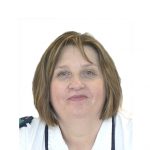
Margaret Cooksey
Clinical Education Manager
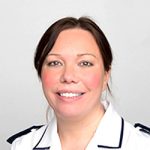
Sarah Fullwood
Interprofessional Senior Educator
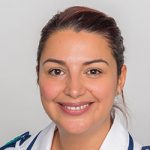
Helena Vasconcelos
Senior Clinical Educator
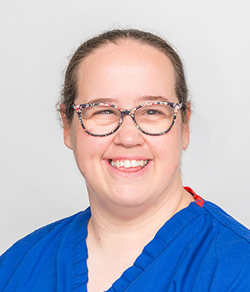
Rachel Jordison
Senior Clinical Educator
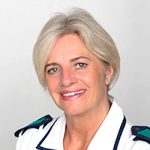
Karen Cottrell
Clinical Educator
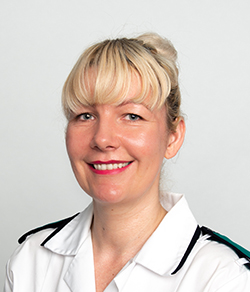
Victoria Perry
Clinical Educator
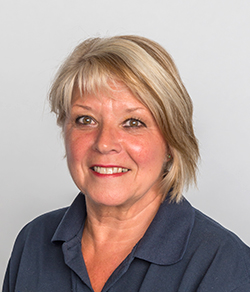
Lynn Badger
Clinical Educator

Lisa Perkins
Clinical Education Facilitator
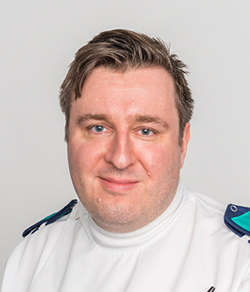
Robert Louis
Clinical Educator
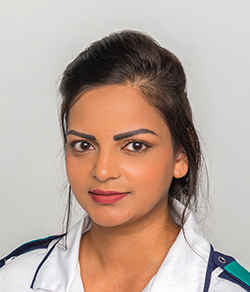
Nila Patel
Clinical Educator
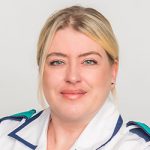
Ashley Winslow
Clinical Educator

Simon Nicklin
Clinical Education Technician

IPE Study Days
Interprofessional Education (IPE) is now well established as a core element within the 4th year teaching programme. The previous pathways have now been replaced by IPE individual study days which cover these subjects;
- Cardiology
- Diabetes
- Oncology
- Respiratory
- Stroke
- Surgical
The new IPE study days allow more opportunity for students from multi-professional backgrounds to attend. This ensures that there is a greater mix of multi-professionals for the medical students to learn alongside. This will enhance balanced decision making as the students are exposed to a wider range of different values, perspectives, knowledge and skills.
The development and regular review of these study days is undertaken to ensure that they encompass the Competency Framework for Interprofessional Education as set out by the University of Birmingham Medical School.
IPE Workshops include:
- Bereavement (5th Year)
- Breaking Bad News (4th Year)
- End of Life (4th Year)
- Safe Discharge Planning (5th Year)
- Safe Prescribing & Drug Administration (5th Year)
Medical Work Experience Programme
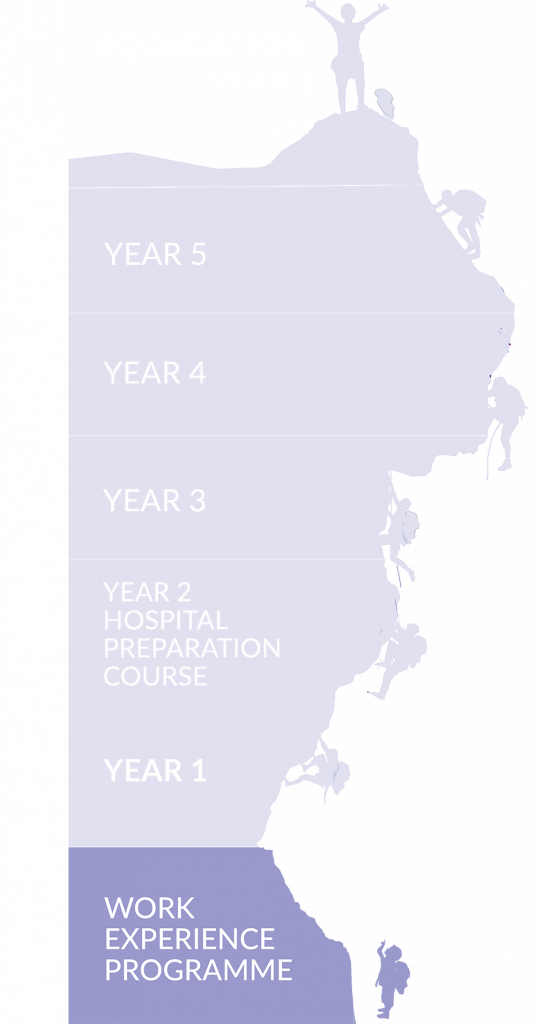
MEDICAL WORK EXPERIENCE PROGRAMME
Since 2008, we have run a medical work experience programme for students aged 16 and above. The programme allows those aspiring to a career in the healthcare sector an opportunity to gain an awareness of the role that they might be interested in, enabling them to obtain a better understanding of the work involved. Attending a programme like the one we offer is particularly useful for strengthening university or job applications. Entry is extremely competitive and this type of learning opportunity helps students to stand out.
Our programme provides students with the opportunity to experience a variety of hospital departments, interact with a broad range of healthcare professionals, and gain career insight into the field of medicine and surgery.
Introductory presentations, observing the work that goes on in the ward and other patient areas, and participating in interactive experiences and hands–on learning with simulation models are some of the opportunities available. An advisor from the University of Birmingham provides an insight into how to apply to medical school.
Whilst the programme runs for two weeks each year, students may only attend for one week. The application process usually opens in early January and closes at the end of March, with eligibility being limited to students living or attending schools, colleges or higher educational establishments within the Dudley area. We evaluate feedback provided by students and, where possible, changes are made to improve how we deliver the programme.
AM I ELIGIBLE FOR WORK EXPERIENCE?
You must be a student in Year 12 and above and must be 16 years of age at the time the work experience takes place, and either attend schools/colleges or higher educational establishments within the Dudley area or reside in the Dudley borough.
MEDICAL WORK EXPERIENCE PROGRAMME 2025
Applications are now open for the 2025 programme.
This work experience programme will run for two weeks. Students can choose to attend for one week on the following dates:
- Week A: 23rd – 27th June 2025
- Week B: 30th June – 4th July 2025
Select the button below to learn more and apply online.
For any queries, please contact: dgft.medicalwork.experience@nhs.net
What do our Students Say?
"What one piece of of advice would you give to students in their first few weeks of placement?"
"Have you made use of the resources on the RGUC website while you've been here?"
"Do you have any tips for those new to the hospital, on how to get the most out of their ward and bedside teaching?"
"Are there any key teaching opportunities or events that you particularly enjoyed at Russells Hall?"
“We had an enjoyable session which encourage discussion and learning, with a good rapport between students and presenters.”![]() Fourth Year Medical Student
Fourth Year Medical Student
“Really good session, interactive, good participation from whole group. Teacher was friendly, approachable, and really enthusiastic. Thought the content was very useful and appropriate for our level.”
![]() Fifth Year Medical Student
Fifth Year Medical Student
“Good content, easy to follow and not too difficult (I knew nothing before this session). I feel like I have learnt a lot. Engaging and interesting!”
![]() Fourth Year Medical Student
Fourth Year Medical Student
“Excellent teaching, really good interactive discussion and brilliant resources.”
![]() Third Year Medical Student
Third Year Medical Student

